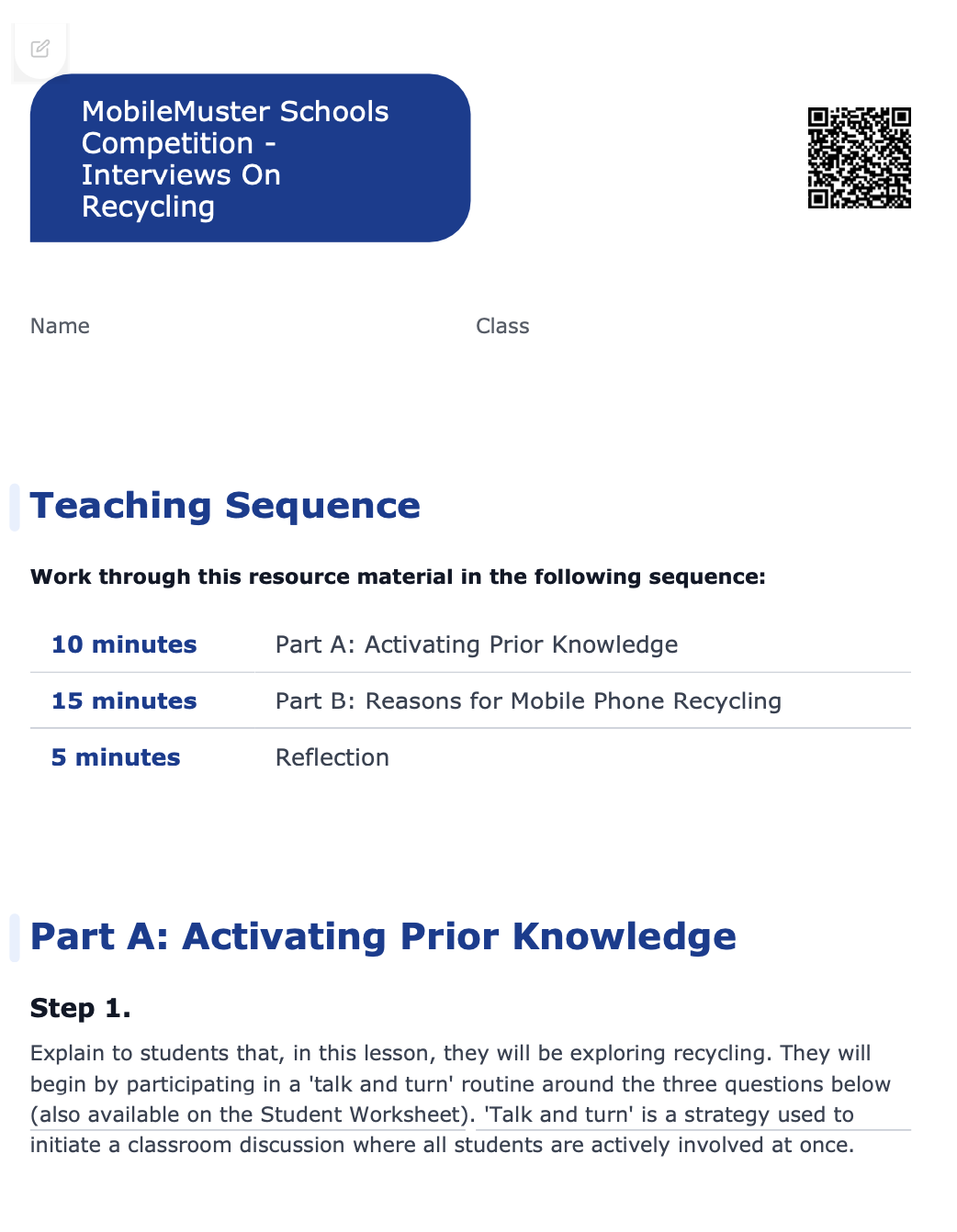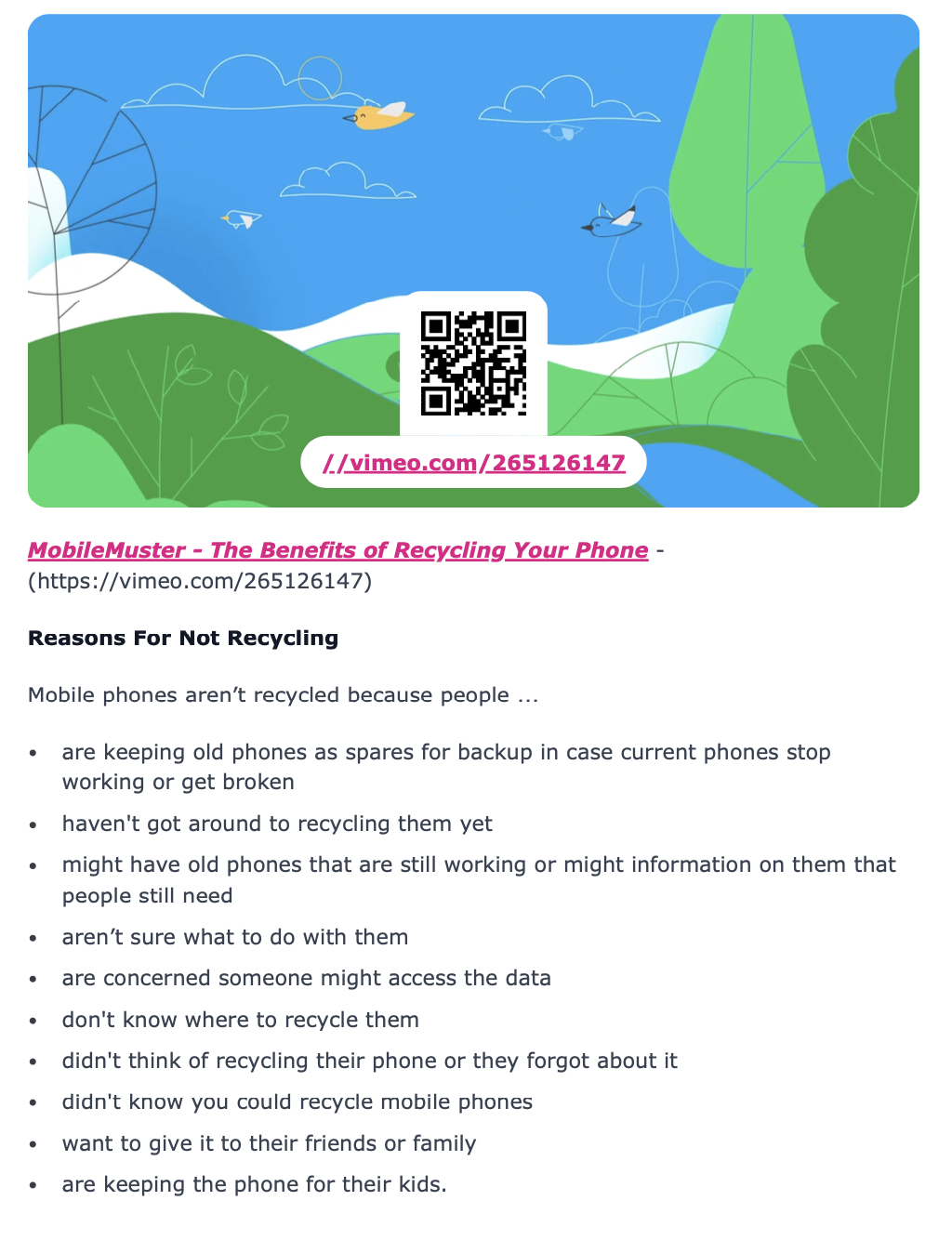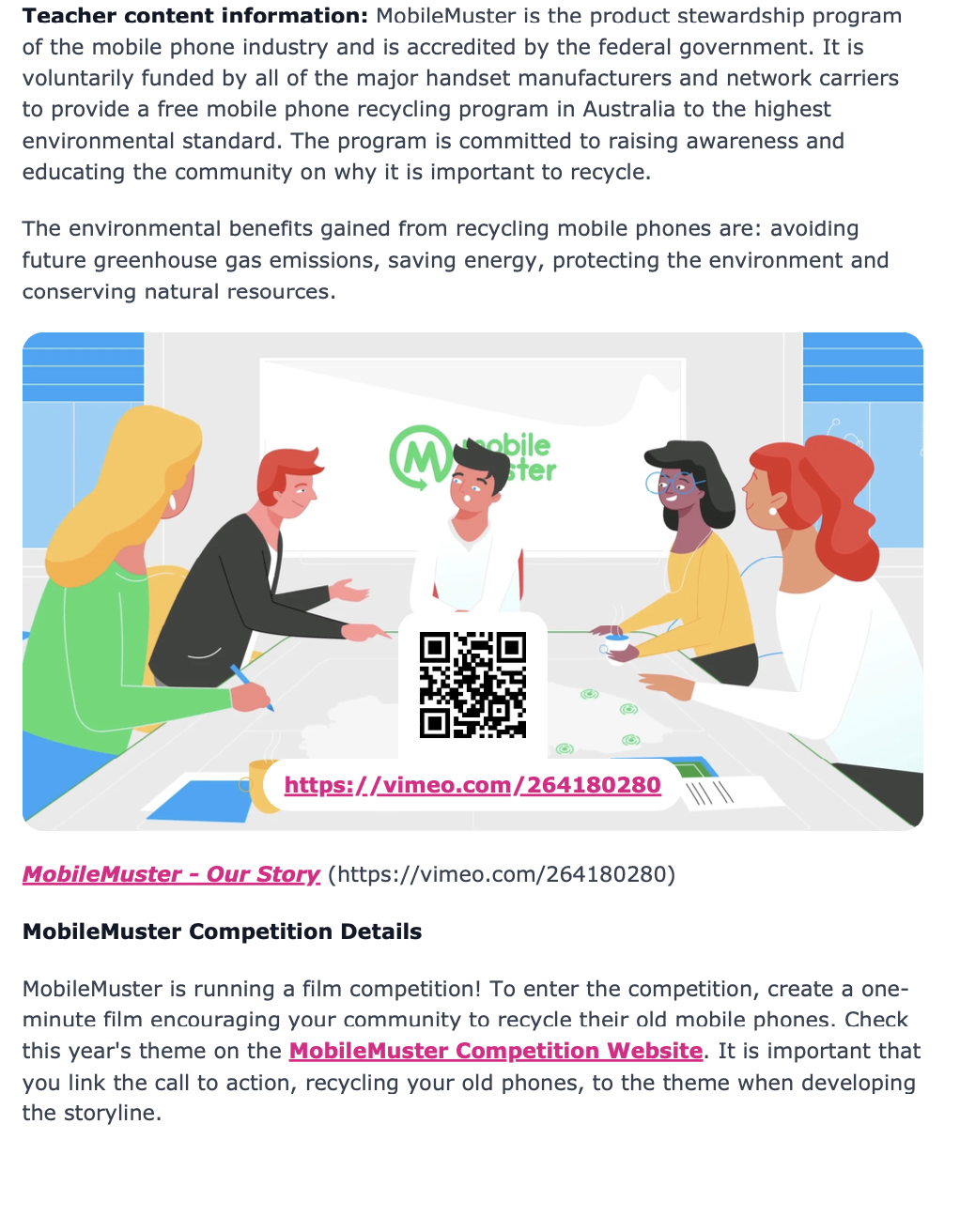Lesson summary
This lesson is one of eight lessons for Years 3-8, designed to support you and your students to produce quality media for the MobileMuster Schools Competition, with the aim of encouraging the community to recycle more of their old and unused mobile phones. Students may choose to create a drawing, photograph, or short film to enter. The 2023 MobileMuster Schools Competition is open and the theme is ‘Inspiring Recycling Action’. For information about the Schools Competition, visit the MobileMuster website.
Learning intentions:
Students will...
- examine behaviour change media looking at how and why they were created, and discuss how these works can develop social awareness
- propose their own theme for tackling behaviour change linked to resource use.
Success criteria:
Students can...
- identify key issues and elements presented in behaviour change media
- write a theme to address a resource use issue.
Lesson guides and printables
Lesson details
Curriculum mapping
Australian Curriculum (v9.0) content descriptions – HASS:
Students will:
propose actions or responses to an issue or challenge that consider possible effects of actions (AC9HS3S06)
learn about sustainable use and management of renewable and non-renewable resources, including the custodial responsibility First Nations Australians have for Country/Place (AC9HS4K06).
General capabilities: Numeracy, Critical and Creative Thinking
Syllabus outcomes: ST2-7MW-T
Cross-curriculum priority: Sustainability
Relevant parts of Year 3 & 4 achievement standards:
Students describe the causes, effects and contributions of people to change. Students propose actions or responses. They describe where, why and how visual artists create artworks across contexts.
Level of teacher scaffolding: Medium – facilitate class discussion, present information, facilitate data collection and interpretation
Resources required
- student worksheets – one copy per student
- a device capable of presenting a video to the class
- audio or video recording devices (optional)
- Renewable and Non-renewable Resources Factsheet (optional)
- Survey Design Tips (optional)
- Barriers to Recycling Mobile Phones (optional)
Skills
- Communication
- Global citizenship
- Ethical understanding
- Community engagement
- Reflection
Additional info
This lesson has been developed as part of Planet Ark’s National Recycling Week. Following this lesson plan is an ideal way for your school to take part in MobileMuster. You’ll be joining thousands of amazing teachers in making a difference and creating positive environmental change. Take part in the Schools Recycling Right Challenge for Planet Ark’s National Recycling Week. Register your lesson or other activities today!




Welcome back!
Don't have an account yet?
Log in with:
By signing up to Cool.org you consent and agree to Cool's privacy policy to
store, manage and process your personal information. To read more, please see
our privacy policy here(Opens in new tab).
Create your free Cool.org account.
Many of our resources are free, with an option to upgrade to Cool+ for premium content.
Already have an account?
Sign up with:
By signing up to Cool.org you consent and agree to Cool's privacy policy to
store, manage and process your personal information. To read more, please see
our privacy policy here(Opens in new tab).